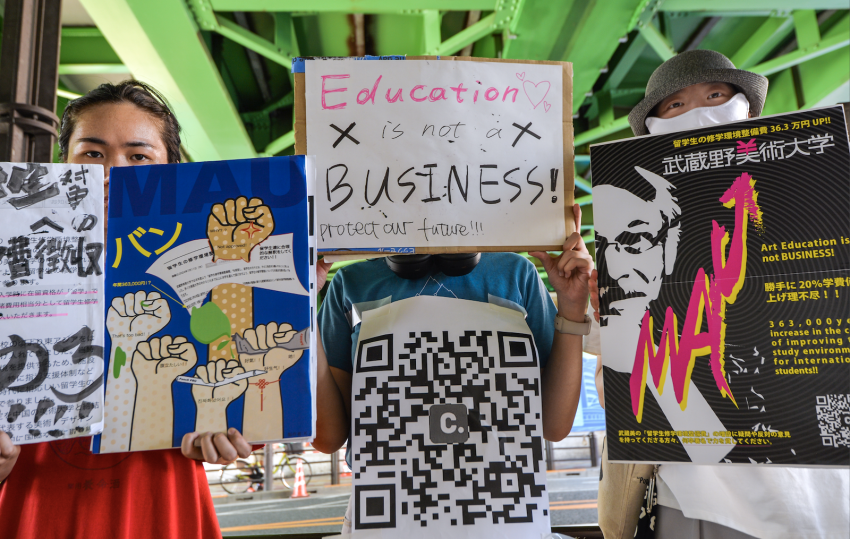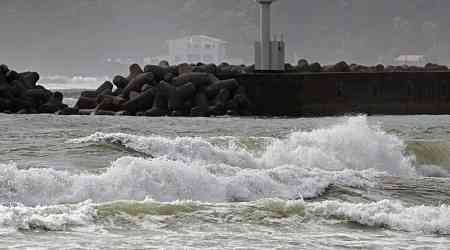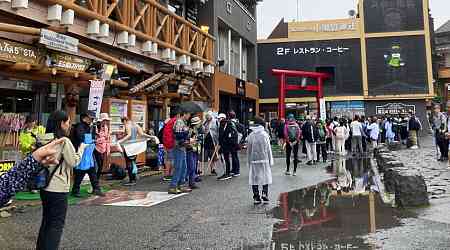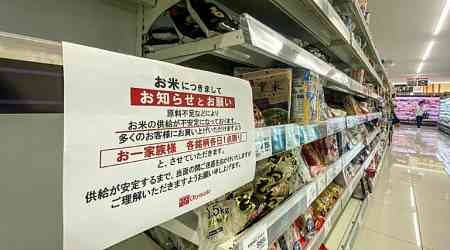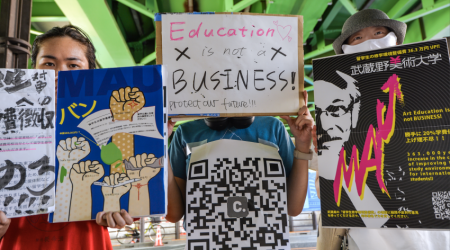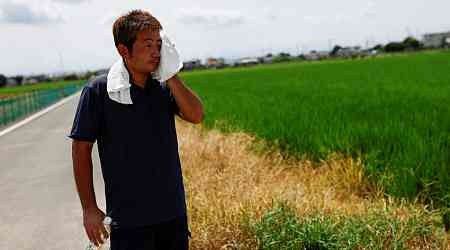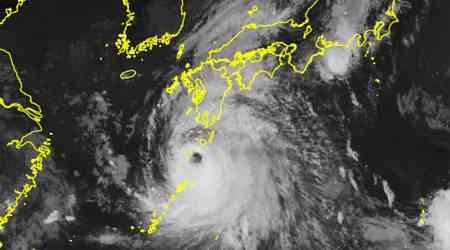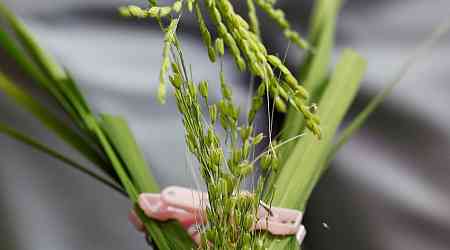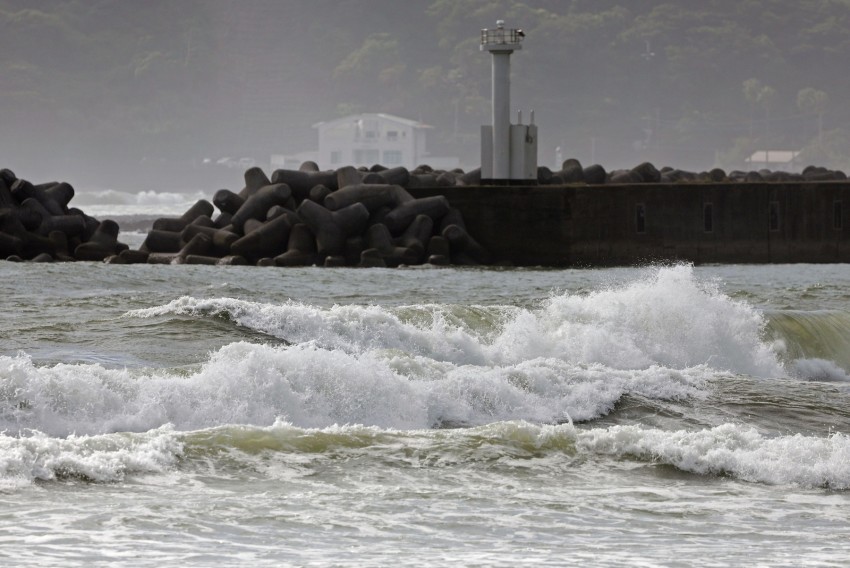A decision by a famous private art university in Tokyo to take the rare step of hiking fees just for its foreign students has caused a backlash, with some of them taking to the streets to protest what they view as a discriminatory step.
Musashino Art University said in July that it will charge foreign students an extra levy of 363,000 yen, the equivalent of around 20 percent of existing tuition fees, per year from next April, while keeping charges for domestic students unchanged.
While the university described the levy as a step to help improve the study environment for foreign students, the norm in Japan has been to treat domestic and overseas students equally in terms of fees.
On a scorching hot summer day on Aug 4, a number of the university's foreign students staged a protest in front of a train station in central Tokyo.
Although the charge will only apply to students enrolling in 2025, they said the decision to implement what they view as an effective tuition fee hike was made without consulting them and was "arbitrary" and "unconvincing."
"It's discriminatory. I can't bear the fact that only international students are asked to pay more without a detailed explanation," said a Chinese student who identified himself only by his family name Yang.
He said that while he had chosen to attend the university for its "liberal academic environment," it had acted in a "dictatorial" way.
He is among the more than 700 foreign students at Musashino Art University, who account for nearly 15 percent of the total. Chinese students comprise over half of those coming from overseas, with many saying they are attracted by the lack of rules on free expression compared with universities back home and the shared culture of using Chinese characters.
Commonly known as "Musabi" in Japan, the university was founded in 1929 as Teikoku Art School. Alumni include the writer Ryu Murakami, a winner of the prestigious Akutagawa Prize for up-and-coming authors, and Lily Franky, an illustrator, writer and actor.
The university said it will expand its Japanese language and culture program as well as set up a scholarship system for financially strapped students in tandem with the new charge.
It will also enhance services to manage the enrollment status of foreign students, it said, after another university was found in 2019 to have accepted large numbers of overseas students but lost contact with many of them, with some possibly overstaying their visas or working illegally.
"There is a need for our university to establish a system for accepting large numbers of international students now and in the future," the university's public relations team said via an email.
Aside from the station protest, an online petition against the new charge had collected over 5,000 signatures as of Aug. 20, with the campaign also being backed by foreign students from Tama Art University and Tokyo University of the Arts as well as by individuals in the arts industry.
The students argue that many foreign nationals enrolling at Japanese universities, who are permitted to find paid employment alongside their studies for up to 28 hours a week, already struggle to make ends meet despite the general perception that they can afford high tuition fees.
In addition, they question the validity of further boosting Japanese-language education as most foreign students pay for two years of language studies and art lessons before applying to an art university in Japan.
Another Chinese student at Musashino Art University was concerned that the university's move could drive a wedge between the foreign student population as they seek to oppose the measure and their Japanese counterparts.
"I no longer feel secure studying here," said the student, who asked not to be named, adding that she had been distressed by a social media post apparently from a Japanese student saying foreign students are being "selfish."
"I have already decided to change my plans to pursue further studies at the university" and look for enrollment at another Japanese university, she said.
The private university's decision follows a government rule change to allow national universities to remove the upper limit on tuition fees for international students as a means to "improve the environment for accepting" them.
It also comes after the education ministry instructed all universities in April to check the enrollment status of foreign students.
But while abuse of student visas can be an issue, it is unlikely to be a problem at Musashino Art University, argued Shun Ishihara, professor of sociology at Meiji Gakuin University.
"The announcement can be seen as the university effectively taking advantage of the ministry's rule change to improve its finances" as it struggles like many other Japanese universities with declining applicants amid the country's shrinking population.
Charging foreign students more seems a relatively easy way out for the university, as it cannot hike fees for Japanese students for fear of facing fierce opposition and further losing applicants, Ishihara said, adding that other universities are closely watching developments and could follow suit.
Unlike schools in English-speaking countries like the United States, Britain and Singapore that are among the most popular destinations to study, universities in Japan are not sufficiently aware of the need to make efforts to attract foreign students, he said.
"Tuition fees should not be recklessly raised for foreigners without convincing reasons," he argued, noting that relatively affordable fees compared with those in the United States and Britain is one of the draws of Japanese universities.
Some Japanese artists and art critics have also raised doubts about the university's decision, highlighting the invaluable roles foreign students play at Japanese universities.
While it is necessary for universities to spend money to support foreign students, the burden should be shared by all students, said artist Tsubasa Kato, a graduate of Musashino Art University.
"The presence of international students creates diversity at the university and gives other students opportunities to come into contact with diverse values," Kato said, adding that improving foreign students' environment would benefit all students.
"Without recognizing the value of international students, Japanese universities could further be isolated and lose their power in the world," he said.
The school's public relations team said it "will address the opinions of our students as well as those inside and outside the university sincerely."


















